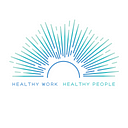Ellen Rosskam, PhD, MPH — Contributing Researcher and Blog Writer
“Working on Empty” (WOE) is a multimedia project on how the U.S. workplace is making Americans sick and what must change to protect the health of our workforce.
___________________________________________________________________
My father’s family owned a candy-making factory. I remember him telling me that everything was fine in the plant until the union came in. “Why?” I asked. “Because then the men started making all kinds of demands, and we had to negotiate with them.” I was not sympathetic. Organizing and using collective voice — basic tenets of democracy — are essential for fairness and equity. In the U.S., our rights were won with bloodshed; in some countries, bloody struggles for rights are still daily realities. Americans’ rights are protected by institutions, but it is everybody’s job to defend those rights and ensure they’re constantly renewed.
I come from a long line of social activists whose values and sense of solidarity influenced me to work for justice, equality, and equity, and to not be silent in the face of social injustice. My parents taught me to value integrity, have a strong work ethic, and put education first. Growing up in Philadelphia, my parents raised us to see everyone as equal at a time in the U.S. when skin color and your neighborhood influenced who you could be friends with. My great-grandmother organized women in Philadelphia to knit hats and gloves for American and British soldiers fighting during World War II. (She received letters of commendation and appreciation from both President Roosevelt and Winston Churchill.) An early feminist, my mother drilled into me and my sisters, “education before marriage.” My mom mobilized mothers to hold a sit-in at my elementary school unless the principal agreed to let girls wear pants to school. She won that battle. When Jimmy Carter campaigned to be president, my mother became a local level campaign activist, knocking on doors, licking envelopes, and dragging my father to fundraisers.
As an undergraduate at UC Berkeley, my professors taught me ‘if you have to think out of the box, maybe there’s something wrong with the box,’ and the value of a systems perspective, meaning use a big picture perspective if you want to understand just about anything. My professors of occupational health and health education at UCLA School of Public Health taught me that social, economic, occupational, and environmental factors have strong influences on health and that individual behaviors and genes can’t explain everything. You know, Genetics loads the gun, environment pulls the trigger. A PhD in Management helped me get a deeper understanding of the impact of organizational behavior on working people’s health and how change can be achieved.
You know, Genetics loads the gun, environment pulls the trigger. — Grad School Education at UCLA Public Health
Wherever I look, I see poorly designed conditions of work and working people suffering needlessly. Chronic stress from worrying if you’ll still have your job tomorrow and be able to maintain your life wreaks havoc on your health. I’ve seen physical and psychological wreckage result from bullying, harassment, burnout, overwork, downsizing, insecure work, subsistence-level wages, jobs where people have no control over how they organize and perform their work, or where they feel the efforts they put into their work are not valued.
…the conditions…can be changed…
My research, teaching, and work as a public health practitioner in many countries have led to my conviction that the conditions of work are created by people, not by some force of nature, and can be changed. There’s enough evidence showing us the way to reduce hypertension, cardiovascular disease, stroke, depression, and anxiety linked to the conditions of work. A healthy American workforce requires change.
To support the WOE movement:
- Share this article with a friend or a colleague.
- Connect: Facebook & Twitter.
- Visit: workingonempty.org.
- E-mail: WorkingonEmptyDoc@gmail.com
With your help, we will have created more than hope — we’ll have cemented lasting, positive change in the name of healthy working conditions.
Ellen Rosskam, Ph.D., M.P.H., WOE Contributing Researcher and Blog Writer and Research Associate with the Center for Social Epidemiology, is a global public health and social protection specialist, as well as the author of numerous books and scientific publications. She is the author of Excess Baggage: Leveling the Load and Changing the Workplace (Baywood, 2007), and co-editor of Unhealthy Work: Causes, Consequences, Cures (Baywood, 2009). (LinkedIn, Twitter)
